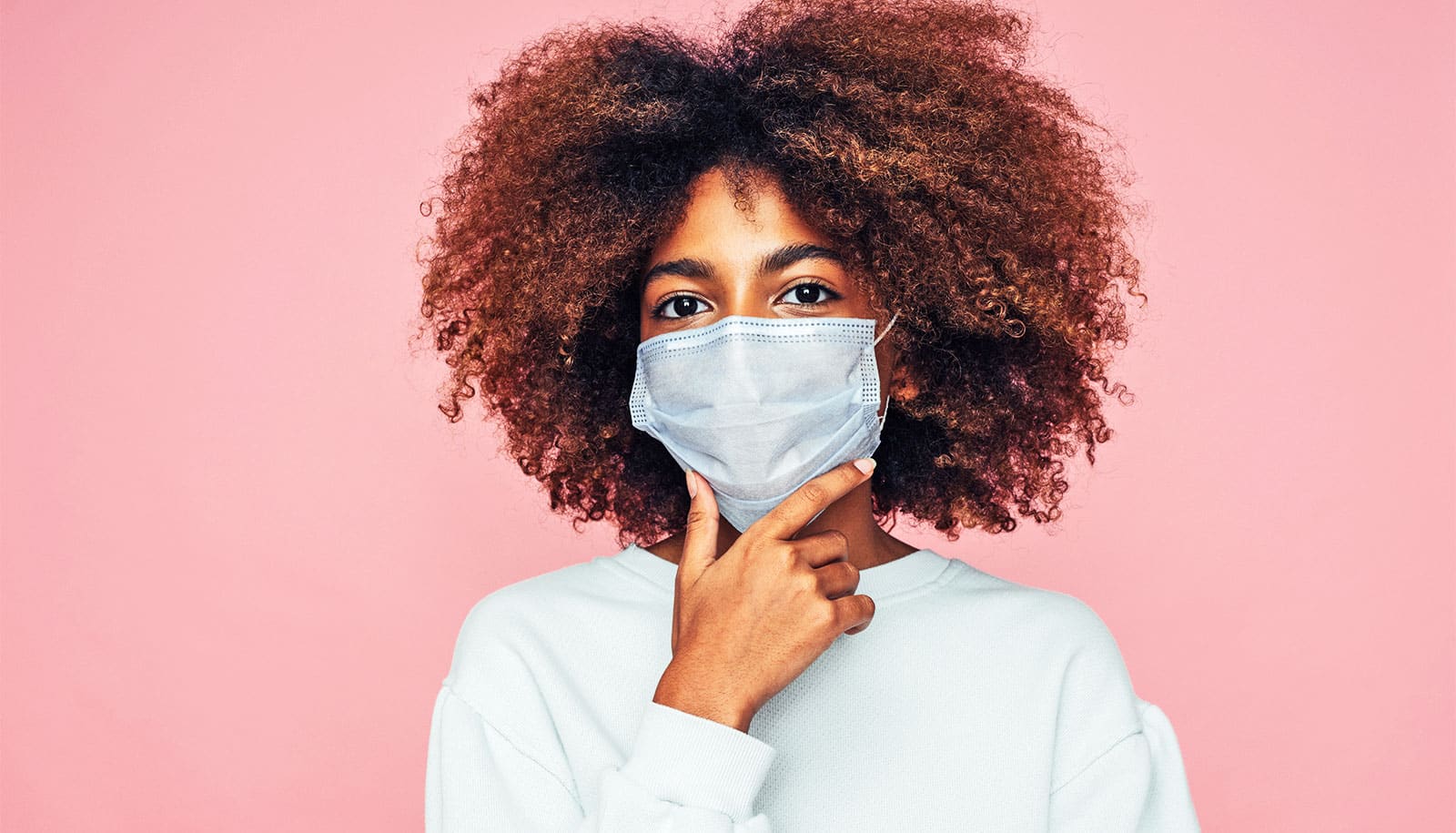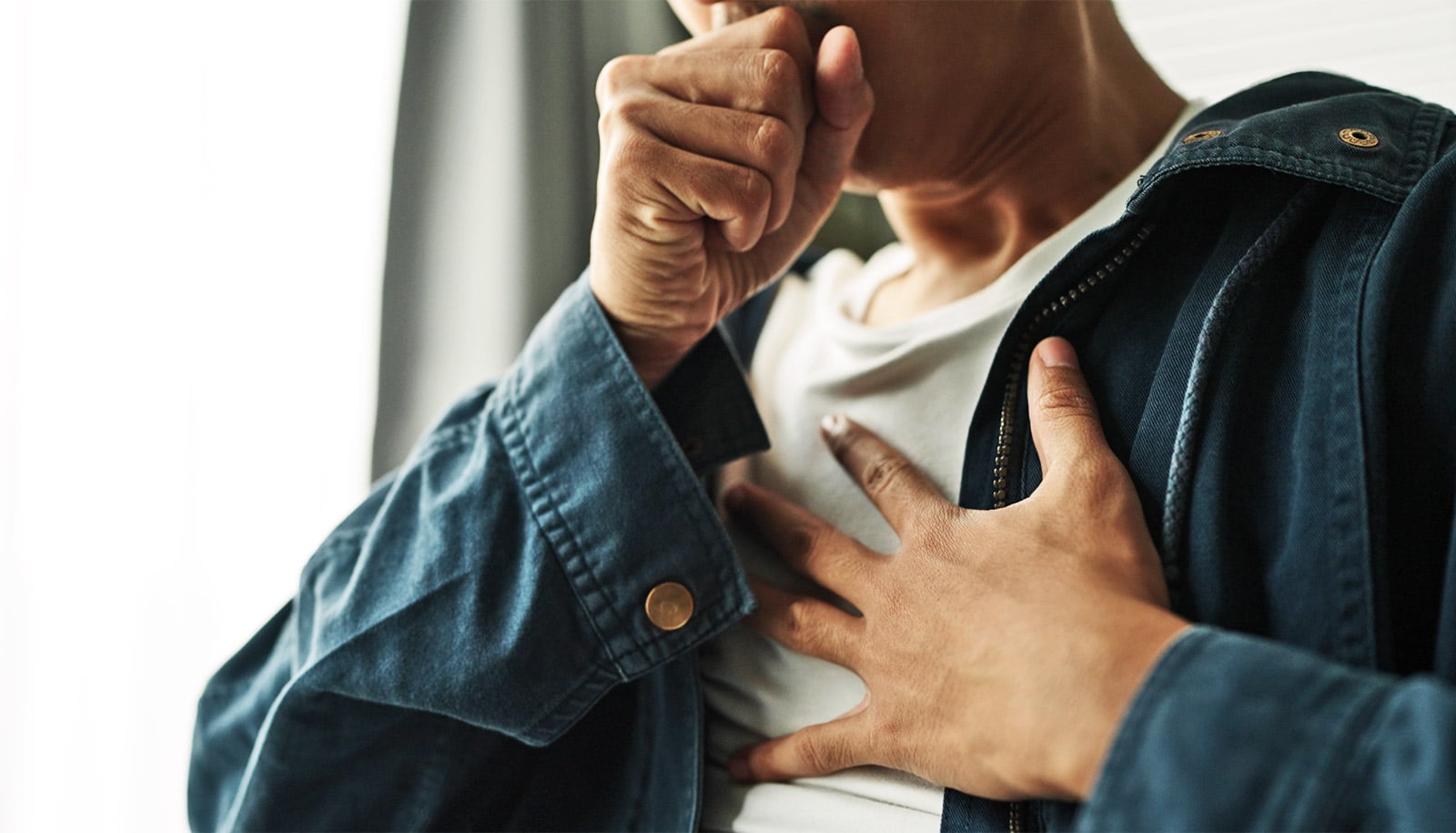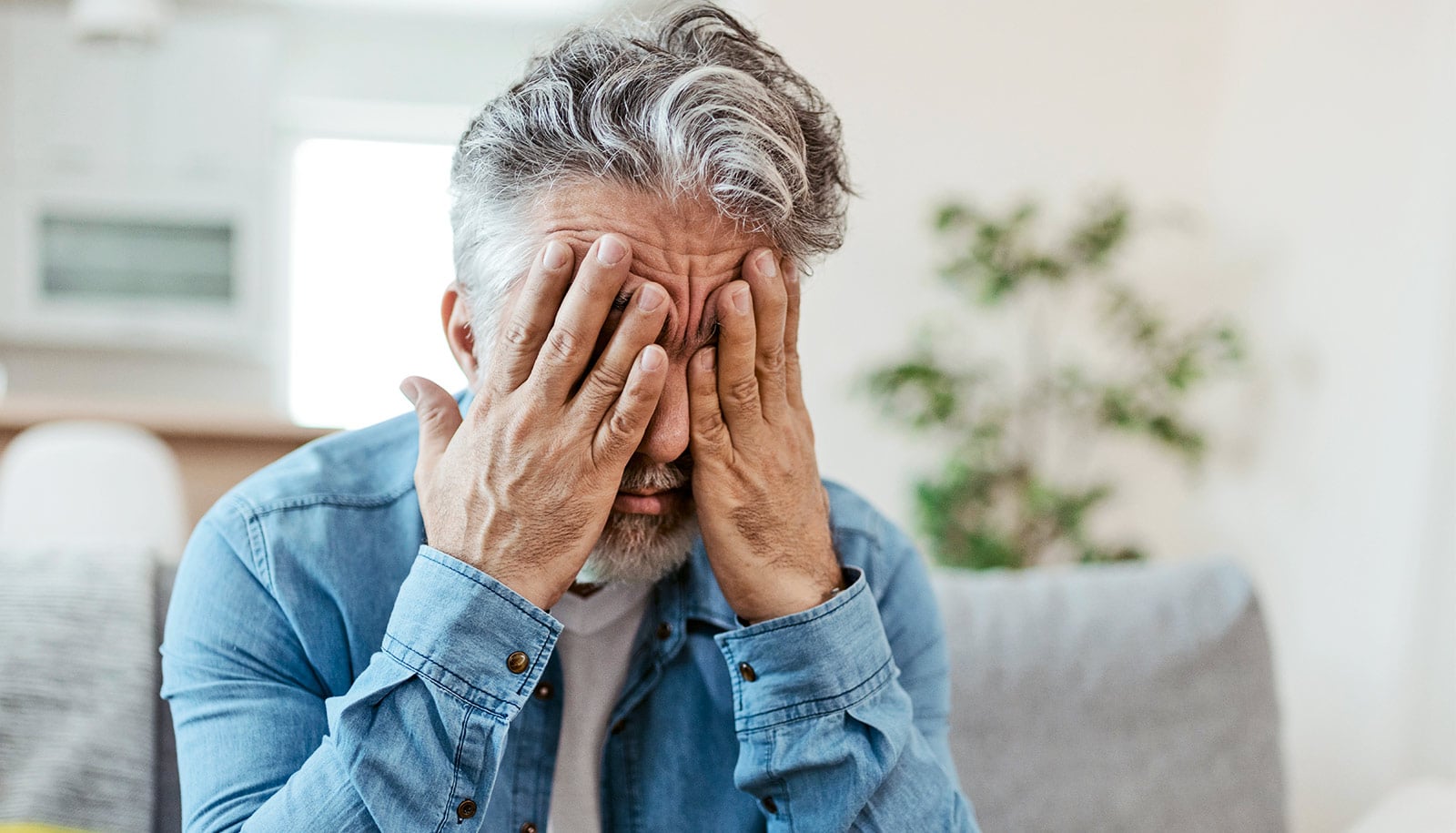Infectious diseases doctor and researcher Sabrina Assoumou says so-called “super-dodgers” could teach scientists a lot about the virus that causes COVID.
Five years after the world shut down in response to the rapid spread of a mysterious disease, the total number of reported cases of COVID-19 worldwide is approaching 800 million. That’s roughly the equivalent of the entire population of Europe. Approximately 10,000 new cases are still reported every day worldwide.
And, yet, somehow in our midst are Novids, or so-called “super-dodgers”—people who have never had COVID-19.
BU Today first wrote about this phenomenon in January 2023, speaking to Boston University clinician and researcher Sabrina Assoumou. That story became one of the most-read in the publication’s history—and one of the most-commented-on, as people shared their own tales of being exposed to the virus but never testing positive.
“Never had Covid. No vaccine. 4 out of 6 people in my household have had it twice or more. 3 of them were vaccinated with boosters. I’m confused as to why I’ve never gotten it,” one woman writes.
Scientists are curious, too, because if they can determine whether Novids have some sort of genetic code, antibody, or cell makeup that is helping to ward off COVID, they might be able to use that information to design stronger treatments or more effective vaccines.
Here, two years later, Assoumou digs into what scientists have learned about COVID and people who’ve never gotten it:
It’s hard to believe there are still people out there, five years later, who still have never had COVID. Does that surprise you?
I think a lot of those individuals are people who are trying very hard not to get it. They are probably still masking and avoiding large crowds, especially indoors. I still get weekly emails from people who saw our first article, and they write to tell me, I found your article, I don’t think I’ve had COVID. And they are asking if there are studies they could join to answer important questions related to this topic.
So that’s a good thing, I suppose, right?
It’s fascinating on many levels. As a scientist, it’s great to know there is goodwill out there, and that people want to help us find answers. People do want to help science, they care about what’s potentially happening.
As a scientist, what do you tell people?
The best way to limit the risk of getting COVID and its complications is to get vaccinated. Vaccination doesn’t prevent all infections, but it prevents some. Most importantly, vaccination decreases the risk for severe disease, hospitalization, and death. We also know that masking works. It is especially helpful in crowded indoor settings with poor ventilation. Testing is also helpful to prevent spreading infections. We also know that Paxlovid is helpful for individuals at risk for developing severe complications such as older people or individuals with underlying conditions.
What else have scientists learned?
Age is important. We know that children are at a lower risk than older adults for getting severe complications from COVID.
Let’s talk about the human immune system. What has COVID taught us about our immune systems?
Let’s start with some background on the immune system. There are two arms of the immune system, the innate immune system and the adaptive immune system. The innate immune system provides us with a more general response to infections. The adaptive immune system is more specific and involves antibodies, T-cells, and B-cells. In the adaptive immune system, your body targets an infectious agent with a response that is specific to that infection. Information that we have learned with COVID is that children appear to have a more robust innate immune response to this infection and they therefore have less severe symptoms if they are infected.
How did our immune systems react to COVID?
COVID was interesting. If you look at it today, it’s mostly people 75 and older who are dying from COVID. Age is such an important determining factor for death. Children were doing better than you would expect. We think this occurs because their innate immune response seems to address the infection earlier than adults. This is interesting because when we compare what we are seeing with COVID to other respiratory infections such as influenza, the story is a little different. For influenza, we see that younger and older individuals are most impacted. This is in contrast to COVID, where children seem to have milder disease.
There was a time when we all thought masks might just be a permanent part of our future. But that seems to have passed now and the vast majority of people stopped masking. Why do you think masks didn’t stick?
If you go to Asia today, you see more people wearing masks than in the US. Some have noted that changes that occurred after Asia experienced SARS [severe acute respiratory syndrome caused by SARS-coV1] in the early 2000s might explain these differences. The SARS outbreak involved 29 countries and likely contributed to a more cautious approach to respiratory infections. So, masking is probably more common there because of past experiences and also some cultural factors. There seems to be a general attitude that masking is what you do when you have a cold or to protect others. We didn’t have the same experience with SARS-CoV1 so perceptions about masking are a little different than what we see in Asia.
Can you talk about what kind of research and studies have been done or are being done with Novids?
A team of investigators in collaboration with the NIH are trying to specifically answer some key questions. The project is called the COVID Human Genetic Effort and they are still recruiting patients who appear to be resistant to COVID.
If you go to their main mission page, they are trying to understand why certain people get more severe infection and why some people might not develop COVID despite being exposed.
From your research, how likely do you think it is that genetics play a role in whether someone is more or less susceptible to getting COVID?
Genes that prevent SARS-CoV -2 infections altogether have not yet been identified, but we have some information about individuals who get infected but do not develop any symptoms because of their genetic makeup. For example, a study discovered that some individuals have a variation in genes coding for HLA (human leukocyte antigens), and they are therefore less likely to develop symptoms after an infection.
Information about people who are less susceptible to COVID is important because these individuals might provide data to help us develop better vaccines and treatments for SARS-CoV-2. If we understand what is happening at a biological level, you can better develop approaches to prevent it.
Is that how Paxlovid was developed?
Paxlovid works by interfering with a protein that contributes to helping the virus grow and spread. It is indicated for people who are at high risk for developing severe complications from COVID. It is given early after infection to decrease disease severity. It is notable that Paxlovid was also studied to see if it could prevent individuals who were exposed to SARS-CoV2 from developing the infection. Unfortunately, in those cases it didn’t work to prevent infections. So, in summary, Paxlovid needs to be taken early after infection and it works best for individuals who are at risk for severe disease such as older individuals or individuals with underlying conditions.
Lastly, I have to ask about the political climate right now, especially around vaccines. How concerned are you?
What’s concerning for me as an infectious diseases physician is that COVID is a preventable illness. All the current deaths are preventable. Last month, we had approximately 900 people dying per week from COVID. That’s a lot of people in 2025. It is notable that the current recommendation from the CDC says that individuals who are 65 or older should get a vaccine in the fall and then a second one around February.
The CDC recommendation was developed to address the deaths that we are seeing, but unfortunately we are not observing vaccination levels that would be helpful to address all preventable deaths. So right now, in terms of vaccination I am more focused on individuals 65 and older. Every single one of those deaths, as we sit here today, was preventable, with vaccines. We succeeded in creating vaccines that work very well for severe disease, hospitalization, and deaths, but unfortunately there isn’t enough vaccination occurring.
For many people, you would think the possibility of getting long COVID might scare them into getting the vaccine.
Vaccination has been shown to decrease your chances of getting long COVID. It is true that long COVID isn’t as common as it used to be earlier in the pandemic. It used to be estimated that 20 to 30 percent of individuals who were infected would get long COVID. Now the proportion has come down, but it is still approximately 7%. That’s still a lot of people.
Do you wonder how long you’ll be getting emails about COVID?
The best part of getting emails about NOVIDs is that what I am reading is different from the headlines on the news. We know that there has unfortunately been a decrease in the trust of science; however, these emails remind me that there are still many people who want to contribute to science. Many of the people who write to me are altruistic, they want to help science. This gives me hope about creating a better future for everyone. That’s the part that warms my heart.
Source: Boston University



